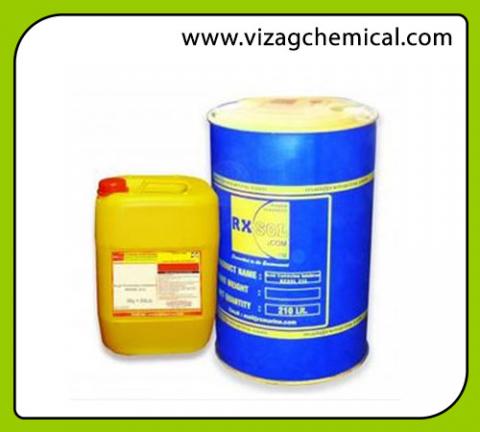Primary tabs

Croton Aldehyde
Crotonaldehyde is a clear, colorless to straw colored liquid with a strong, suffocating odor. It is highly flammable and produces toxic vapors at room temperature. Crotonaldehyde is found naturally in emissions of some vegetation and volcanoes; many foods contain crotonaldehyde in small amounts.
Crotonaldehyde has the aldehydic group at the C-1 position and −C=C− at the position at C-2 with 4 carbon atoms in the parent chain, thus the name is But-2-en-1-al.
Crotonaldehyde is mainly used in the manufacture of sorbic acid, which is a yeast and mold inhibitor. Crotonaldehyde has been used as a warning agent in fuels, as alcohol denaturant, as stabilizer for tetraethyl-lead, in the preparation of rubber accelerators, and in leather tanning.
| PRODUCT NAME | : | CROTONALDEHYDE |
| CAS number | : | 123-73-9 |
| UN number | : | 1143 |
| Formula | : | CH3CH: CHCHO |
| Odour | : | PUNGENT, SUFFOCATING |
| Soluble in water | : | APPPRECIABLE |
| Density | : | 0.853 at 20 oC |
| Boiling point | : | 104 oC |
| Melting point | : | -74oC |
| Viscosity | : | |
| Flashpoint | : | 13oC |
| Explosive limits | : | 2.1 – 15.5 Vol% |
| Vapour pressure | : | 40 mbar at 20 oC |
| Skin absorption/irritation | : | YES |
| TLV Country NL Year 1995 | : | 2 ppm 6 mg/m3 |
| Pollution category 1994 | : | A |
Crotonaldehyde, stabilized appears as a clear colorless to straw colored liquid with a penetrating pungent odor.
Very toxic by inhalation.
May polymerize with the release of heat under exposure to heat or contamination. If polymerization takes place inside a container, the container may rupture violently.
Less dense than water. Vapors heavier than air.
